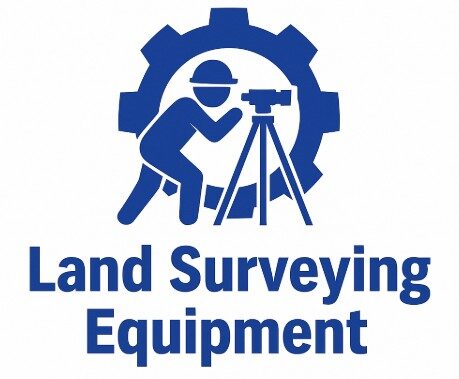Work-Life Balance in Land Surveying: Strategies for Success
Achieving a harmonious balance between professional and personal life is crucial for land surveying job satisfaction. Surveyors often face demanding workloads, tight deadlines, and high levels of stress, making it challenging to maintain a healthy equilibrium.
The importance of work-life balance in land surveying cannot be overstated. Research has shown that surveyors who achieve a balance between their work and personal life lead more fulfilling and successful lives.
To address this challenge, this article will explore effective strategies for achieving a healthy work-life balance in land surveying. By implementing these strategies, surveyors can improve their overall well-being, increase job satisfaction, and enhance their professional performance.
Key Takeaways
- Understanding the importance of work-life balance in land surveying
- Identifying strategies for achieving a healthy work-life balance
- Improving job satisfaction through effective time management
- Enhancing professional performance by reducing stress
- Implementing work-life balance strategies in daily life
The Unique Challenges of Land Surveying Careers
The demanding nature of land surveying careers poses significant challenges to maintaining a healthy work-life balance. Land surveyors often face unpredictable schedules and seasonal fluctuations in workload, which can be particularly challenging.
Seasonal Demands and Unpredictable Schedules
Land surveying is a profession heavily influenced by seasonal changes and weather conditions. During peak seasons, surveyors may work extended hours, including evenings and weekends, to meet project deadlines. This unpredictability can make it difficult to plan personal and family life.
- Seasonal fluctuations lead to periods of intense work followed by slower periods.
- Unpredictable weather conditions can cause unexpected delays or demands.
Physical and Mental Demands of Field Work
Fieldwork in land surveying is both physically and mentally demanding. Surveyors often work in challenging environments, such as rugged terrains or extreme weather conditions, which can lead to physical strain. The mental aspect of ensuring accuracy and meeting project specifications adds to the stress.
Key challenges include:
- Physical strain from working in challenging environments.
- Mental stress from ensuring accuracy and meeting deadlines.
Understanding these challenges is crucial for developing strategies to achieve a better work-life balance as a land surveyor. By acknowledging the seasonal demands and the physical and mental toll of fieldwork, surveyors and their employers can work together to mitigate these challenges.
Work-Life Balance in Land Surveying: Why It Matters
The land surveying profession, with its unpredictable schedules and physical demands, requires a deliberate approach to balancing work and life. Achieving this balance is not just beneficial but essential for the well-being of surveyors.
Defining Healthy Balance in a Demanding Profession
A healthy work-life balance in land surveying means managing the demands of the job while maintaining personal well-being. It involves setting boundaries between work and personal life, prioritizing self-care, and leveraging support systems.
Surveyors can achieve this balance by adopting strategies such as flexible scheduling, where possible, and utilizing technology to streamline work processes, thereby reducing the strain of long hours and physical demands.
Industry Statistics on Burnout and Job Satisfaction
Industry statistics reveal a concerning trend regarding burnout and job satisfaction among land surveyors. Studies indicate that high levels of stress and long working hours contribute to burnout, affecting not only the individual’s health but also their job performance.
- A significant percentage of surveyors report experiencing stress and burnout due to work-related factors.
- Job satisfaction is closely linked to the ability to maintain a work-life balance, with those achieving a better balance reporting higher satisfaction levels.
- Implementing work-life balance strategies can lead to improved productivity and reduced turnover rates in the industry.
By understanding the importance of work-life balance and implementing strategies to achieve it, land surveyors can improve their overall well-being and job satisfaction. This, in turn, contributes to a more sustainable and productive surveying profession.
The Consequences of Imbalance in Surveying Careers
The consequences of not achieving a work-life balance in land surveying can be far-reaching and detrimental to one’s health and career. Land surveyors often face demanding schedules and high-pressure situations that can impact their overall land surveyor well-being.
Physical Health Impacts of Prolonged Field Work
Prolonged field work can lead to various physical health issues, including musculoskeletal disorders, fatigue, and increased risk of accidents. Surveyors often work in challenging environments, exposing them to extreme weather conditions, uneven terrain, and other hazards. Effective stress management techniques are crucial to mitigate these risks.
Mental Health Risks for Surveyors
The high-stress nature of land surveying can also have significant mental health implications, including anxiety, depression, and burnout. Land surveying stress management strategies are essential to help surveyors cope with these pressures. Techniques such as mindfulness, regular exercise, and seeking support from colleagues or professionals can be beneficial.
Effects on Career Longevity and Job Performance
Imbalance in work and personal life can affect not only health but also balancing work and personal life in land surveying is crucial for career longevity and job performance. Chronic stress and burnout can lead to decreased productivity, increased absenteeism, and turnover. By prioritizing well-being, surveyors can maintain their performance and enjoy a longer, more fulfilling career.
By understanding the consequences of imbalance and implementing effective strategies, land surveyors can protect their health and enhance their career sustainability.
Surviving 60-Hour Workweeks During Peak Seasons
Surviving the grueling 60-hour workweeks that come with peak seasons is a significant challenge for land surveyors. The key to managing these demanding periods lies in preparation, efficient daily routines, and effective recovery techniques.
Pre-Season Preparation Strategies
Preparation is crucial before the peak season hits. Land surveyors can start by reviewing past projects to identify patterns and anticipate the demands of upcoming projects. This includes planning equipment maintenance, staffing, and training to ensure that the team is ready for the increased workload. Effective pre-season preparation can significantly reduce stress during peak periods.
Another vital strategy is financial planning. By saving during slower periods, surveyors can better manage their finances during peak seasons when work is plentiful but so are the expenses related to extended work hours. Tips for work-life balance in land surveying often include having a financial cushion to fall back on.
Daily Routines That Preserve Energy
During peak seasons, maintaining energy levels is crucial. Establishing a daily routine that includes regular breaks, healthy eating, and some form of exercise can help preserve energy. For land surveyors, this might mean packing nutritious lunches, staying hydrated, and taking short breaks to stretch or meditate.
Achieving work-life balance as a land surveyor involves finding ways to maintain physical and mental health even during the most demanding periods. Simple practices like getting enough sleep and limiting caffeine intake can make a significant difference.
Recovery Techniques Between Long Shifts
Recovery is just as important as preparation. After long shifts, land surveyors should prioritize rest and relaxation. This can involve activities that help to decompress, such as spending time with family, engaging in hobbies, or practicing mindfulness and meditation. Land surveying stress management techniques are essential for maintaining overall well-being.
By implementing these strategies, land surveyors can better manage the demands of 60-hour workweeks during peak seasons. It’s about finding a balance that allows for professional success without sacrificing personal health and happiness. Effective recovery techniques and pre-season preparation are key to achieving work-life balance in this demanding profession.
Setting Professional Boundaries in Client-Driven Projects
To achieve job satisfaction and work-life balance, land surveyors must learn to establish and maintain professional boundaries with clients and management. This involves effective communication, realistic deadline setting, and knowing when to say no to excessive demands.
Effective Communication with Clients About Timelines
Clear and timely communication with clients is crucial in managing expectations and setting realistic project timelines. Surveyors should clearly outline project milestones and potential roadblocks to avoid last-minute rushes or misunderstandings. By doing so, they can foster a collaborative environment where clients feel informed and respected.
Utilizing project management tools and regular update meetings can significantly enhance client communication. This proactive approach helps in building trust and reducing the likelihood of scope creep, which can derail project timelines and impact work-life balance.
Negotiating Realistic Deadlines with Management
Negotiating deadlines with management requires a data-driven approach, where surveyors provide historical project data and resource availability to justify realistic timelines. This not only aids in setting achievable milestones but also in allocating sufficient resources to meet project demands.
It’s essential for surveyors to advocate for themselves and their teams by clearly communicating the implications of tight deadlines on project quality and team well-being. By negotiating feasible deadlines, surveyors can prevent burnout and maintain high standards of work.
When and How to Say No to Overtime
Recognizing when to say no to overtime is vital for maintaining a healthy work-life balance. Surveyors should assess their current workload and the potential impact of additional hours on their physical and mental health. Saying no to overtime might involve proposing alternative solutions, such as adjusting project timelines or reallocating tasks.
It’s crucial to communicate the rationale behind declining overtime to management and clients, highlighting the long-term benefits of a balanced workload on productivity and job satisfaction. By setting these boundaries, surveyors can protect their well-being while maintaining professional integrity.
Technology as a Work-Life Balance Tool
By leveraging advanced technologies, land surveyors can significantly improve their work-life balance, leading to enhanced job satisfaction and overall well-being. “Technology has been a game-changer in our industry, allowing us to work more efficiently and effectively,” notes a surveyor in a recent industry report.
Field Technology That Reduces Manual Labor
The use of advanced field technologies such as GPS and drones has significantly reduced the manual labor required in land surveying. These technologies enable surveyors to collect data more quickly and accurately, reducing the need for repetitive and time-consuming tasks.
Key benefits of field technology include:
- Increased efficiency in data collection
- Improved accuracy of survey data
- Reduced physical strain on surveyors
Software Solutions for Streamlining Office Work
Software solutions play a crucial role in streamlining office work for land surveyors. By automating tasks such as data processing and report generation, surveyors can save time and focus on more critical aspects of their work.

Digital Organization for Time Management
Digital organization tools help land surveyors manage their time more effectively. By using digital calendars, task lists, and project management software, surveyors can prioritize their work, meet deadlines, and maintain a healthy work-life balance.
Effective digital organization can lead to: better time management, reduced stress, and improved productivity.
Mental Health Preservation for Field Crews
The demanding nature of land surveying often puts field crews at risk of burnout, making mental health preservation crucial. Field crews are exposed to a variety of stressors, including tight deadlines, challenging environmental conditions, and the physical demands of their job.
Recognizing Early Warning Signs of Burnout
Identifying the early signs of burnout is critical for maintaining the mental health of field crews. These signs can include chronic fatigue, irritability, and a decrease in productivity. Regular check-ins with team members can help in early detection.
- Increased absenteeism or tardiness
- Reduced performance quality
- Withdrawal from team activities
On-Site Stress Management Techniques
Implementing stress management techniques on-site can significantly reduce the risk of burnout. Techniques such as deep breathing exercises and short breaks can be effective.
Building Team Support Systems in the Field
A strong team support system is vital for mental health preservation. Encouraging open communication and fostering a supportive team environment can help mitigate the stresses of the job. Team-building activities can strengthen bonds among crew members.
“A supportive team environment is crucial for managing stress and preventing burnout in high-pressure professions like land surveying.”
By focusing on these strategies, land surveying field crews can better manage their mental health and maintain a healthy work-life balance.
Burnout Prevention Strategies for Surveying Managers
Surveying managers play a pivotal role in preventing burnout among their team members, starting with themselves. By adopting effective strategies, they can enhance land surveying job satisfaction and overall team performance.
Understanding the importance of work-life balance in land surveying is crucial. It not only improves job satisfaction but also reduces the risk of burnout.
Managing Your Own Stress While Leading Teams
Surveying managers must prioritize their own stress management to lead by example. This includes:
- Regular exercise and healthy eating habits
- Mindfulness practices such as meditation
- Setting realistic goals and boundaries
Creating Balanced Work Schedules for Your Crew
One of the key tips for work-life balance in land surveying is creating schedules that allow for adequate rest and personal time. This involves:
- Forecasting peak periods and planning accordingly
- Avoiding excessive overtime
- Ensuring adequate staffing levels
Implementing Mental Health Check-ins and Support
Regular mental health check-ins can significantly reduce the risk of burnout. Managers should:
- Conduct regular team meetings to discuss well-being
- Provide access to mental health resources
- Foster an open and supportive team culture
By implementing these strategies, surveying managers can not only prevent burnout but also enhance the overall well-being and productivity of their teams.
Physical Wellness Practices for Surveying Professionals
Physical wellness is a cornerstone of a successful and sustainable career in land surveying, enabling professionals to withstand the rigors of fieldwork. Surveying involves long hours, physical labor, and often, challenging environmental conditions. Therefore, maintaining a high level of physical health is not just beneficial but necessary for job performance and overall well-being.

Nutrition Planning for High-Energy Field Days
A well-planned nutrition strategy is vital for surveyors to maintain their energy levels throughout the day. Consuming a balanced diet that includes proteins, complex carbohydrates, and healthy fats can help sustain energy and support overall health. Hydration is equally important, as it prevents fatigue and maintains concentration.
- Plan meals in advance to ensure healthy eating.
- Pack snacks that are rich in nutrients and energy.
- Stay hydrated by drinking water regularly throughout the day.
Exercise Routines Compatible with Irregular Schedules
Surveyors often have irregular schedules, making it challenging to maintain a consistent exercise routine. However, incorporating physical activity into daily life can be achieved through flexible and efficient workout strategies. This might include bodyweight exercises, short cardio sessions, or even stretching exercises during breaks.
- Identify exercises that can be done with minimal equipment.
- Schedule workouts during less busy periods.
- Use technology, like fitness apps, to guide workouts.
Preventing and Managing Physical Strain Injuries
Physical strain injuries are a significant risk for surveyors due to the physical demands of their job. Preventive measures include proper lifting techniques, regular breaks, and ergonomic practices. When injuries do occur, prompt and appropriate management is crucial to prevent further damage and facilitate recovery.
“Injury prevention is not just about avoiding harm; it’s about maintaining the ability to perform at your best.” –
By focusing on nutrition, exercise, and injury prevention, surveying professionals can significantly enhance their physical wellness, leading to improved job satisfaction and a healthier work-life balance.
Seasonal Planning for Year-Round Balance
To maintain a fulfilling career and personal life, land surveyors must adopt effective seasonal planning strategies. This involves preparing for the fluctuations in workload that come with different times of the year, ensuring that both professional responsibilities and personal well-being are maintained.
Maximizing Downtime During Slow Seasons
During slower periods, land surveyors can focus on professional development and personal rejuvenation. This might include taking vacations, engaging in training or certification programs, or tackling administrative tasks that are often deferred during busier times.
Financial Planning to Reduce Pressure During Peak Times
Effective financial planning is crucial for managing the feast or famine nature of land surveying work. By saving during slow periods and budgeting for peak times, surveyors can reduce financial stress and maintain a stable lifestyle year-round.
Continuing Education During Off-Peak Periods
Off-peak periods offer an ideal opportunity for land surveyors to pursue continuing education. This not only enhances their skills and knowledge but also keeps them competitive in a rapidly evolving field. According to a study, investing in ongoing training and development can significantly improve job satisfaction and career longevity.
Success Stories: Balanced Careers in Land Surveying: Stories of surveyors who achieved a healthy work-life balance. Stories of surveying companies that prioritized work-life balance and saw positive outcomes.
By examining the experiences of surveyors who have attained a healthy work-life balance, we can identify effective strategies for success in this demanding field. The land surveying profession, known for its challenging nature, requires innovative approaches to manage work and personal life effectively.
Profiles of Surveyors at Different Career Stages
Surveyors at various stages of their careers have found unique ways to balance their work and personal life. For instance, early-career surveyors often focus on developing efficient work habits and setting clear boundaries between work and personal time.
- One surveyor shared that by utilizing technology, such as field data collection tools, they were able to reduce their work hours and increase their free time.
- Another surveyor highlighted the importance of a supportive team, stating that a collaborative work environment significantly reduced their stress levels.
As surveyors progress in their careers, they often adopt more flexible work arrangements, such as remote work options or flexible hours, to better balance their professional and personal responsibilities.
Practical Lessons from Industry Veterans
Industry veterans in land surveying offer valuable insights into achieving a balanced career. Their experiences provide practical lessons for surveyors looking to improve their work-life balance.
“The key to a balanced career in land surveying is not just about managing your time effectively but also about maintaining your physical and mental health.”
Some of the practical strategies shared by veterans include:
- Prioritizing tasks and managing time efficiently to reduce work hours.
- Investing in technology to streamline work processes and reduce manual labor.
- Fostering a supportive work environment that encourages work-life balance.
Innovative Approaches to Flexible Surveying Careers
The land surveying industry is evolving, with innovative approaches emerging to support flexible careers. Companies are now offering flexible work arrangements, such as part-time or project-based work, to attract and retain top talent.
For example, a land surveying firm that adopted flexible work arrangements saw a significant improvement in employee satisfaction and retention. This approach not only benefited the employees but also enhanced the company’s reputation and productivity.
By embracing flexibility and prioritizing work-life balance, surveyors and surveying companies can achieve greater job satisfaction and success in their careers.
Conclusion: Creating a Sustainable and Fulfilling Surveying Career
Achieving a work-life balance is crucial for land surveying professionals to lead fulfilling and successful lives. Throughout this article, we’ve explored the unique challenges faced by surveyors and the strategies that can help mitigate these challenges. By prioritizing work-life balance in land surveying, professionals can improve their overall job satisfaction and reduce the risk of burnout.
The importance of work-life balance in land surveying cannot be overstated. By implementing strategies such as pre-season preparation, effective communication with clients, and leveraging technology to streamline work, surveyors can create a more sustainable career. This, in turn, can lead to increased land surveying job satisfaction and a better quality of life.
Ultimately, creating a sustainable and fulfilling surveying career requires a commitment to prioritizing one’s well-being and setting boundaries. By doing so, surveyors can enjoy a long and rewarding career, while also maintaining a healthy work-life balance.






